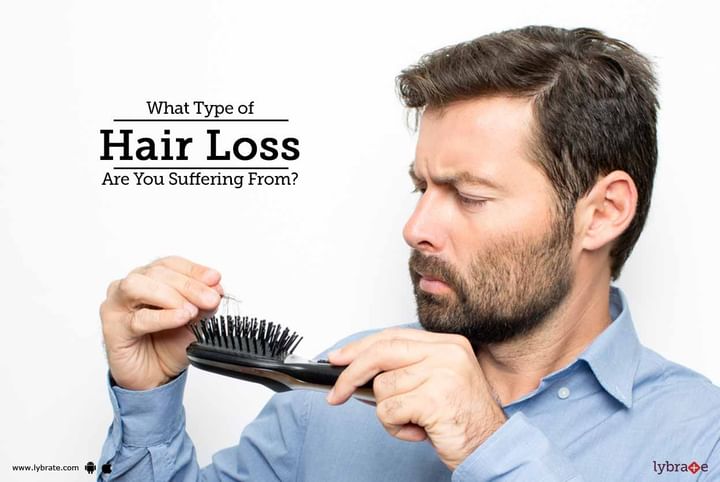Get the App
For Doctors
Login/Sign-up
Last Updated: Oct 23, 2019
BookMark
Report
What Type of Hair Loss Are You Suffering From?
Dr. Rekha ChoudharyTrichologist • 12 Years Exp.MBBS Bachelor of Medicine and Bachelor of Surgery, Diploma In Dietitian For Obesity Management, Diploma in Clinical Dermatology, Trichology & Hair Transplant, PGDEMS
Hair loss or Alopecia areata is a condition characterized by loss of hair from the scalp and other parts of the body that have hair over a prolonged period of time. Recent research states that losing 100 strands of hair a day is normal. But anything in excess indicates that you might be suffering from this embarrassing condition. Experiencing recurring episodes of hair loss can end up affecting one’s self-confidence, and hence, any sphere of his personal life as well.
What causes hair loss?
- Over 95% of hair loss occurs due to hereditary factors coming into play. A family history of this condition can exacerbate one’s risks of developing the condition.
- Hair loss can also occur if you have been exposed to increased stress levels of late. Temporary hair loss is also observed in people suffering from mental stress or trauma resulting from an incident, may be the death of a loved one or any other incident that might have brought on shock and stress on the concerned person.
- Hair loss can also result from chemotherapy or radiation therapy. Also, certain medications used to combat cancer, depression, heart disorder, birth control and arthritis might also result in significant loss of hair.
- Hair loss can occur as a result of thyroid disorders such as hyperthyroidism or hypothyroidism.
- Hair loss might also be the result of an auto-immune disorder known as ‘Alopecia Areata’ that results in bald spot formation around the scalp, beard, and eyebrows.
- Trichotillomania (a mental condition wherein a person pulls out hair from the scalp, almost unconsciously) can lead to hair loss as well.
- Hair loss can also occur as a result of excessive experimentation with your hair. This can include using permanent hair straightening devices, developing curls or tight braids, ponytails, etc.
- Hormonal imbalances or change, noticeable mostly during pregnancy or at the onset of menopause can be triggers of hair loss as well.
- Ringworm infection can also result in hair loss by damaging the skin of the scalp and hair. However, hair loss tends to get better once the infection is treated.



+1.svg)
